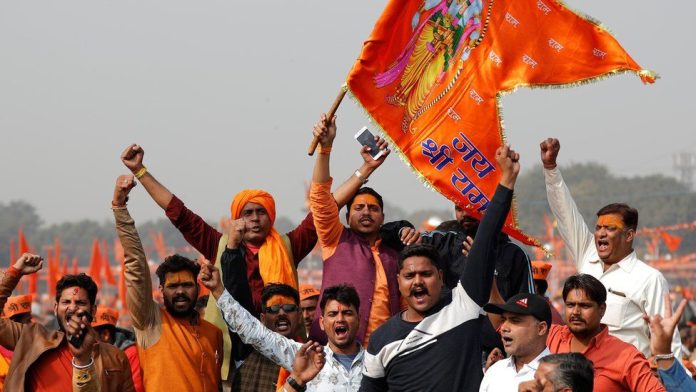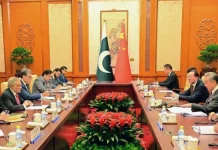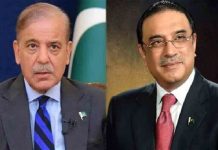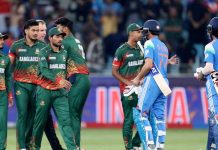DM Monitoring
Srinagar: “Kashmiris were 100% better than you (Bharatiya Janata Party). We were happy with the abrogation of Article 370.We didn’t know that they are destroying us. Article 370 was our identity and safety. We are Dogras! Kashmiris were also scared of us. We would boast of our Dogra identity. If they (Kashmiri politicians) would get Rs 20, they would give us Rs 10.”
These utterances of the father of the president of the J&K Yuva Rajput Sabha, an organisation spearheading protests in the Jammu region to seek suspension of a toll plaza in Sarore Samba, shows how the thinking of people in Jammu has changed over the reading down of Article 370 by the BJP-led Union government. The video in which he makes these remarks has gone viral on social media.
The protests over the toll plaza have become a platform for Jammuities to vent their anger over a series of moves by the union territory’s unelected government after the reading down of Article 370 and reorganisation of the erstwhile state of Jammu and Kashmir in August 2019.
The region observed a complete shutdown on August 26 (Saturday) and witnessed protests and slogans against the union territory’s administration and the BJP. The protests in BJP’s citadel over governance issues fly in the face of claims made by the Union government and LG-led administration that J&K is on the path of progress and development after the constitutional changes of 2019.
It all began with the Yuva Rajput Sabha (YRS) issuing an ultimatum to the administration to suspend toll collection at Sarore Plaza due to the bad condition of the road and damage to a bridge at Dayalachak on the Jammu-Pathankot highway.
On August 21, YRS held a protest rally near the toll plaza. Some people also pelted stones at the plaza and damaged glass windows, prompting the administration to impose Section 144 around the toll post.
Late at night on August 21, the J&K police arrested 26 leaders from the Sarore toll post, sparking off massive protests in the region. Soon, opposition political parties joined in and held protests against the administration.
On August 26, the region witnessed a complete bandh on the call of the Jammu Chamber of Commerce and Industries against the Sarore toll plaza and installation of smart electric metres. The protesters mocked the BJP with slogans of “Jammu, Jammu” – a slogan often raised by BJP leader Devinder Rana.
From the very beginning, the BJP, or its earlier avatar Jan Sangh, has been projecting itself as a protector of the interests of Jammu. The right-wing party has often accused successive regimes in J&K of poor treatment towards the region and bias in favour of Kashmir.
When the BJP was in the opposition in the erstwhile state, it had objected to setting up a toll plaza at Lakhanpur and compared it to the collection of jaziya from Vaishno Devi pilgrims on the way to Katra.
Its workers, led by Chandra Prakash Ganga who became minister in the PDP-BJP coalition government in 2015, dismantled the structure of the Sarore toll plaza in May 2014.
This is the fourth time after August 5, 2019 that Jammu has observed a shutdown over economic issues. It observed bandhs on the imposition of property tax, proposal of opening of Reliance retail stores, and lawyers’ demand for housing quasi-judicial bodies and the Central Administrative Tribunal (CAT) at one place.
“Jammu has been betrayed and backstabbed,” advocate Sheikh Shakeel Ahmad told The Wire.
He said that Jammu was promised that its lands and jobs wouldn’t be compromised, but there are no safeguards for the region like Ladakh. “All major contracts have gone to outsiders. The outsiders have taken away major contracts in mining and others business avenues,” he claimed.
He said abolishing of the practice of the administration’s darbar move (moving the winter capital from Srinagar to Jammu) has crippled business in Jammu. “Lakhs of Kashmiris would visit Jammu in winters and spend crores of rupees here. Now less people visit the region after the government abolished the darbar move,” he claimed.
The darbar move was a 149-year-old official practice of rotating the seat of J&K’s governance between the twin capitals of Srinagar and Jammu on a bi-annual basis. It was abolished in 2021 by the J&K administration led by Manoj Sinha, saying it will save the state exchequer Rs 200 crore annually.
Arun Gupta, president of the Jammu Chamber of Commerce and Industries (JCCI), said that there is an attempt to disturb the business community of Jammu.
“Let them (government) keep their focus on Kashmir, but they shouldn’t don’t disturb us. We are not anti-nationals,” he said.
He said the Jammu bandh was a historic shutdown and the government should talk to the people to understand their grievances. “Abolition of the darbar move practice has not only affected business in the region, but it has also potential to create differences between two regions,” he said.
The Jammu region also witnessed massive protests by unemployed youth in May this year over engagement of a “blacklisted” company by the Jammu and Kashmir Service Selection Board (SSB) for conducting job tests.
While the BJP finds itself in a tight spot over the situation unfolding in Jammu, the political and psychological divergences between Kashmir and Jammu are narrowing down for the first time.
Even the local BJP is trying to distance itself from decisions of the UT’s administration. “The BJP is not in favour of any forcible taxation or demolition. This tax (property) has not been imposed by the BJP, but the LG’s administration. However, paying a trivial amount of tax would ensure crores of funds for development of civic amenities like roads, electricity, lanes, water and drains,” BJP’s J&K president Ravinder Raina told mediapersons in February this year.
On the other hand, Jammu’s Dogri-speaking areas and Kashmir, which have been engaged in a power tussle from Praja Parishad days, are becoming psychologically and politically closer to each other.
The participation of Jammu-based groups in an all-party meeting convened by National Conference president Farooq Abdullah over voting issue and his participation in the Panthers Party foundation day rally shows how leadership of Jammu and Kashmir are coming closer.
J&K is under direct central rule since June 2018 when BJP withdrew support to Mehbooba Mufti-led government, citing the deteriorating security situation in the then state.
When contacted, BJP’s general secretary (organisation), J&K unit, Ashok Koul said the opposition parties are raising anti-BJP slogans during the protests.
He said these parties don’t have any support base and are trying to cash in on these issues.
J&K LG Manoj Sinha had told reporters last week that he has raised the issue of the Sarore toll plaza with the National Highway Authorities of India (NHAI). “I have spoken to the NHAI chairman. This is a genuine issue. Local people are facing problems due to damage to a bridge. He assured me that they will soon send a team. I am hopeful that the issue would be resolved soon,” he said.




